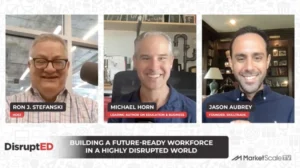Are Businesses Finally Solving the Food Service Industry’s Most Important Issue?
The world population is projected to reach 9.6 billion people by the year 2050. One of the greatest concerns associated with that growth is how to generate enough food for all of those people when there is such a global hunger issue currently. Yet solving world hunger is not actually a production issue, but a waste one. One-third of all food produced globally is wasted, which is enough “to feed all of the world’s hungry four times over.”
The amount of waste is even more staggering within the U.S. where “up to 40 percent of the food is never eaten.” Consequently the U.S. government has set a goal of achieving a 50 percent food waste reduction by 2030.
Food waste occurs at every step along the process from farm to table. For this reason, many initiatives are seeking to unite companies in every part of the food service industry. The Food Waste Reduction Alliance, formed in 2011, “includes more than 30 manufacturing, retailing and food service companies.”
Aramark, known especially for its food service in schools, is part of this alliance. The food service company, from 2016 to 2017 alone, reduced its food waste by 44 percent and diverted 479 tons of waste from landfills. Additionally, 100 percent of their locations track food waste, and they have even implemented technology in many of their higher education dining halls that track the amount of food composted in real time, which allows students to see the impact they are making.
Aramark also encourages students to go tray-less, which reduces food waste by about two ounces per person. This year, partnering with the NFL, PepsiCo, U.S. Bank Stadium, SMG, and the Minnesota Sports Facilities Authority, Aramark contributed to Superbowl LII’s 91 percent resource recovery rate.
Another member of the FWRA that is making strides against food waste is Darden Restaurants. The Darden family of restaurants includes big names like Olive Garden, Longhorn Steakhouse, and Bahama Breeze, and serves more than 320 million meals per year. The company began their Darden Harvest program back in 2003, as part of their goal to eventually contribute zero waste to landfills.
Since 2008, Darden “has reduced food loss in the kitchen by 30 percent” and the restaurants are striving to make sure their excess food is given to feed the hungry in the communities around them. Darden is donating around 8 million pounds of food a year by heat-sealing and freezing excess product, which is then picked up and distributed to local organizations.
Darden is also searching for ways to implement organics recycling in their restaurants, which could divert 50 percent of its waste, but unfortunately at this time there is a “lack of accessible, affordable organics recycling services.”
Companies like Imperfect Produce and Hungry Harvest are seeking to reproduce a Community Supported Agriculture model on a large scale by selling produce that comes directly from farms but is considered too “ugly” for commercial sale, or, in the case of excess product, too costly to transport. This attacks food waste on the front end, where around 20 billion pounds of produce goes to waste every year. Other organizations take aim at the 43 percent of food waste that occurs at home. Move For Hunger seeks to inform the public, and reform policies regarding expiration dates on products, especially with an emphasis on milk. The USDA has contributed to an app called FeedKeeper which allows consumers to set calendar reminders in order to avoid wasting food.
With food waste prolonging world hunger, wasting precious natural resources, contributing to harmful emissions, and resulting in great financial loss, it is more important than ever that every business is seeking out food waste solutions.
For the latest news, videos, and podcasts in the Food & Beverage Industry, be sure to subscribe to our industry publication.
Follow us on social media for the latest updates in B2B!
Twitter – @FoodMKSL
Facebook – facebook.com/marketscale
LinkedIn – linkedin.com/company/marketscale








